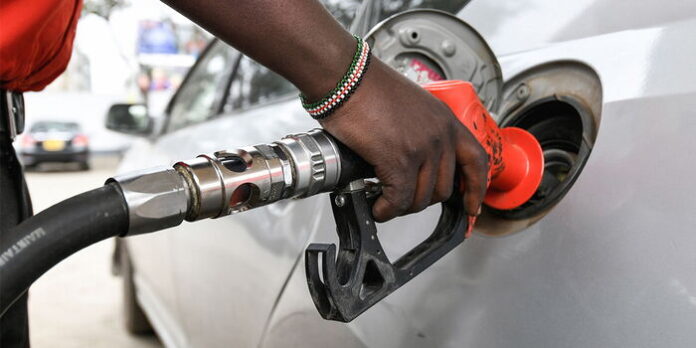Motorists will be forced to dig deeper into their pockets to fuel their vehicles should lawmakers approve a proposal to increase the fuel levy charge from the current Sh18 to Sh25 per litre.
Transport Cabinet Secretary Kipchumba Murkomen wants the Finance and National Planning Committee to increase the tax by Sh7 per litre. It was last reviewed in July 2016. Mr Murkomen said the expected revenue from increasing the fuel levy by Sh7 per litre will amount to Sh115 billion. The government collects Sh83 billion and targets to collect an additional Sh32 billion if the fuel levy is increased.
Mr Murkomen said the financing gap for road maintenance from 2023 to 2027 is Sh315 billion against the projected Road Maintenance Levy Fund (RMLF) collections. He said this will likely increase the maintenance backlog over that period, which stood at Sh727 billion as of 2022.
The CS said an increase in fuel levy will generate enough resources to build and repair roads. “When the current fuel levy rate of Sh18 per litre was established in 2016, the pump price of petrol in Nairobi was Sh95. As at May 2024, pump price is Sh194 while fuel levy remains at Sh18 per litre.
This difference illustrates the loss of purchasing power of the fuel levy over time due to inflation,” Mr Murkomen said. He told the committee that is chaired by Molo MP Kuria Kimani that the RMLF, which is is managed by the Kenya Roads Board receives collections from the Fuel Levy and Transit Tolls.
The CS had appeared before the committee to give his final submissions on the Finance Bill, 2024. He cited challenges in road maintenance as justification for the increase in taxes. “Delayed maintenance is adversely impacting road conditions, a pattern that is projected to accelerate unless resolved,” Mr Murkomen said.
“In 2016 when the fuel levy charge was last adjusted, the length of paved roads nationally was 16,600 kilometres. In 2024, the length of paved roads has increased to 25,411 kilometres.” He said the cost of maintenance of paved roads is significantly higher than for unpaved roads. Baringo North MP Joseph Makilap had sought to know the net effect of increasing the fuel levy by Sh7 on the cost of goods.
Kigumo MP Joseph Munyoro asked the ministry to consider charging a percentage of the fuel levy instead of increasing the amount by Sh7 per litre. “We have a motor vehicle tax of 2.5 percent. We have eco levy on batteries. You now want to increase the fuel levy Sh7. How are all these levies going to affect the cost of transportation?” Kitui Rural David Mboni asked the CS.



















